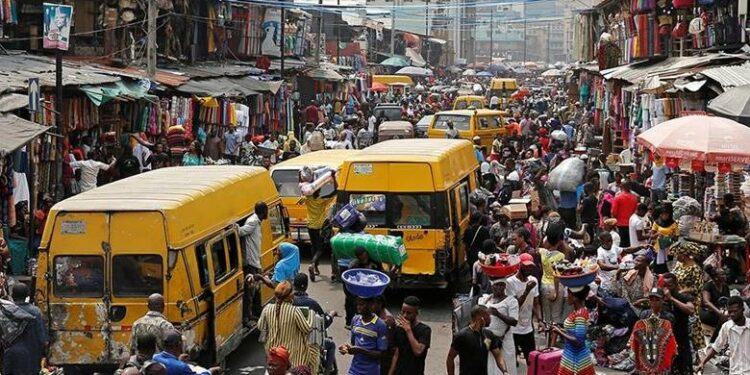Rebased GDP and Welfare of the Average Nigerian
The goal of every government is to achieve splendid welfare for the masses of the people. It stands to reason, therefore, that the welfare of Nigerians is the raison d’être for the plethora of policies, programmes, and projects that the federal government and even the subnational governments have had to formulate and implement over the years. Suffice to say that the decision by the National Bureau of Statistics (NBS), an agency of the Federal Government, to rebase the country’s Gross Domestic Product (GDP) using 2019 as the base year is also targeted at improving the welfare of Nigerians.
Rebasing the GDP does not amount to manipulating data or playing games with data to score some political points or to deceive anyone. GDP rebasing is really a standard statistical exercise that is carried out in line with internationally recognised methodology and procedures to capture and show the changes in the structure and performance of the economy with a view to aligning public policies with these changes. Such changes include consumption patterns, emerging industries, the ascendancy of some sectors and their contribution to the GDP and, of course, the loss of momentum by some sectors. Together, these changes significantly alter the size and structure of the economy. Therefore, rebasing the GDP accurately reflects these changes and shows the current structure and performance of the national economy and the changes in the contributions of the various sectors to the GDP.
With the rebasing of the country’s GDP, the NBS has been able to estimate and show the current size and structure of the national economy. The rebased estimates with the new base year of 2019 indicate that the nominal GDP for the country is much larger than previously quoted. In 2019, the rebased nominal GDP at market prices stood at N205.09 trillion, N213.64 trillion in 2020, N243.30 trillion in 2021, N274.23 trillion in 2022, N314.02 trillion in 2023, and N372.82 trillion in 2024. The rebasing also shows that the structure of the Nigerian economy has changed significantly, with an increase in the share of the agriculture and services sectors and a decrease in the share of industry, in nominal terms. This clearly indicates a shift in the structure of the Nigerian economy from earlier captured. By the 2010 base year nominal figures, agriculture accounted for 22.12% of the GDP, while industry contributed 27.65% and services accounted for 50.22%. But according to the rebased 2019 figures, the share of agriculture has risen to 25.83%, industry declined to 21.08%, while services increased to 53.09%. This is similar to the revelation that the GDP rebasing of 2010 threw up. The 2010 rebasing showed that the size and contributions of the telecommunication and creative sectors had increased appreciably. This was as a result of the launch of the Global System for Mobile Communications (GSM) in 2001 and the boom in the movie industry occasioned by the advent of home videos.
Undoubtedly, the rebasing of the country’s GDP per se cannot alter the welfare of Nigerians in any way. However, the outcome of the rebasing can lead to the formulation and implementation of economic policies that can result in a drastic improvement in the quality of life of Nigerians. This is because the rebased GDP shows the actual size and structure of the national economy and the performance and contributions of the various sectors to the GDP. Therefore, rebasing enables the government to have a better understanding of the real structure of the economy, the sectoral growth drivers, and the sectors where policies and resources should be channelled in order to achieve rapid growth, create jobs, improve infrastructure, reduce poverty, and achieve a better standard of living for the people. In other words, rebasing the GDP enables the government to plan with accurate data. Certainly, planning with accurate data makes a world of difference in formulating policies, crafting programmes, and embarking on projects that can positively impact the lives of the people.
The rebasing shows a clearer and more realistic, and accurate picture of Nigeria’s economy. This update is essential not just for statistical accuracy but also for improved policymaking and more informed decisions across both public and private sectors. It also enhances the country’s ability to attract foreign investments, because the improvement in the size of the economy, which emerged after the rebasing, builds investor confidence and economic credibility. The GDP rebasing of 2010 saw Nigeria’s economy emerging as the largest in Africa. This was a good enough reason for Nigeria to also emerge as the preferred investment destination in Africa.
The 2010 GDP rebasing threw up the telecommunication and creative sectors as a gold mine and growth drivers. To ensure that these sectors grow even faster, the government designed policies and programmes that helped to expand their frontiers and increase their capacity to create wealth for the benefit of the masses of the people. Financial institutions followed by designing special facilities aimed at providing the needed funds for the movie industry. These led to the explosion of the sector, with the value chain stretching and expanding far beyond anybody’s imagination. There is every reason to believe that what played out after the 2010 GDP rebasing will repeat itself with the 2019 rebasing.
The rebased GDP has shown that the real estate sector and the water transport and services sector are experiencing a boom and have become growth drivers. The rebased GDP also shows an increase in the contribution of agriculture to the GDP. These revelations will lead to the designing of new policies by the government to ensure that these sectors grow even faster, contributing to job and wealth creation and improved welfare of the average Nigerian. Naturally, financial institutions will channel more funds to these sectors. These will sustain the boom in the sectors, making them contribute even more to the growth and development of the national economy.
Ogoegbulem is an Abuja-based financial analyst.








